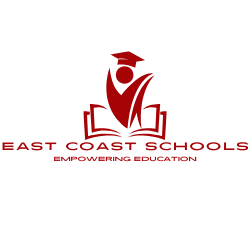In today’s competitive job market, a college education alone isn’t enough. Employers want graduates with relevant experience, polished skills, and a deep understanding of their industries. That’s why a growing number of East Coast colleges are investing in industry-focused career centers—specialized hubs that bridge the gap between academics and the real world.
These career centers don’t just offer resume workshops and interview tips; they’re redefining what career preparation means in the 21st century.
What Are Industry-Focused Career Centers?
Unlike traditional campus career services, industry-focused centers are tailored to specific fields such as:
- Technology and Engineering
- Finance and Consulting
- Media and Communications
- Health Sciences and Pre-Med
- Green Energy and Sustainability
- Public Policy and International Affairs
They often feature dedicated advisors with experience in those industries, connections to employer networks, and curated internship or co-op pipelines.
Why This Shift Is Happening
- Rising Pressure for Post-Grad Outcomes
Colleges are being judged not only by academic rankings but also by job placement rates and median graduate salaries. Industry-aligned centers improve those outcomes—and appeal to both students and parents. - The Skills Gap Is Real
Many grads are entering the workforce without key skills. Career centers focused on specific industries help students gain targeted training, access mentorships, and secure hands-on experiences that match real-world expectations. - Employer Engagement Is Evolving
Top employers want more than job fairs. They’re partnering with colleges to co-create talent pipelines. These centers allow companies to host branded workshops, sponsor capstone projects, and recruit students early. - Networking Becomes Field-Specific
Networking is most effective when it’s aligned with your career path. These centers connect students with alumni mentors, industry events, and internship-to-job pipelines that reflect their chosen field.
Examples of This Trend on the East Coast
- Northeastern University in Boston runs multiple co-op and career centers tied directly to its high-demand majors, helping students land full-time offers before graduation.
- Drexel University in Philadelphia has an industry-aligned career model with employer-specific advisors and a dedicated STEM career team.
- Georgetown University in Washington, D.C. has created tracks within its career center for fields like public policy, law, and international development.
- Columbia University in New York offers sector-specific boot camps and has built industry councils to guide its career programming.
Benefits for Students
✅ Early exposure to industry expectations
✅ More competitive internship opportunities
✅ Customized career advice by field
✅ Better placement rates after graduation
✅ Long-term mentorship and alumni connections
Final Thoughts: The Future of Career Readiness
As college costs rise, return on investment (ROI) has become a key factor in school selection. East Coast colleges are responding by creating career centers that are smarter, faster, and more aligned with the industries students want to join.
For families and students making college decisions, looking into how a school supports career outcomes—especially through industry-specific initiatives—is now just as important as academics.
